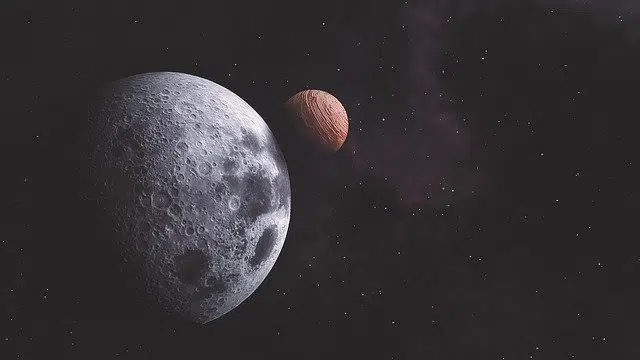
The idea of space can be linked to the surface available in an environment.
Space is a term that comes from the Latin spatium and has many meanings according to the dictionary of the Royal Spanish Academy (RAE) . The first of them has to do with the extension that contains the existing matter .
In a similar sense, space is the part that a sensible object occupies and the capacity of land or place. For example: "Sorry, there is no more space in the living room " , "We are going to have to change the bed as it takes up too much space" , "There is a free parking space there" .
Another use of the term is linked to the passage of time between two events: "The police were searching every corner of the room for four hours," "I have a free space between the meeting at two in the afternoon and the event at seven" .
The concept in TV, radio and texts
In the television and radio environment, the space is a program or a part of the programming : "This channel needs more sports spaces to attract a larger audience," "When the information space ends, the movie will begin."
The separation between the lines of a text , or between its words or letters, is also called space: "I don't understand too much what it says: please enlarge the letter, leave double space and print again."
outer space
The notion of space can also refer to outer space (the region of the universe that is beyond the Earth's atmosphere): "When I was a boy, I dreamed of going to space," "Last night my grandson asked me if many people live in space." Martians» , « NASA was never able to verify the existence of extraterrestrial ships in space» .

Outer space is the part of the universe that lies beyond Earth's atmosphere.
Human beings have always had their eyes on the sky, trying to understand the mystery of existence , find the reason why we are born, and why we do so on this planet. As technological advances have allowed it to move further away from Earth in its eternal cosmic research, it has discovered a series of very shocking data.
Important space discoveries
First is the discovery of water on the Moon , which took place in October 2009, following the collision of the LCROSS probe against the lunar crater called Cabeus. The impact generated a cloud of matter that, a month later, was identified as water , which is found in large quantities on the Earth's satellite.
No less impressive was the discovery of a planet with characteristics very similar to those of Earth , which they named Corot-7b . Although its diameter is twice as large and its mass is five times greater, it is the first solid celestial body that really looks like our home. However, it should be noted that its average temperature is around a thousand degrees Celsius, given that it is located a short distance from its star , making it difficult to imagine that it hosts life forms like the ones we know.
The astronomical community fulfilled a long-awaited dream when it was able to learn the true appearance of Mercury , after many years of waiting. After three very complicated flights over its surface, the Messenger probe provided us with images of some of its most hidden corners. This is the mission that gave scientists a practically complete view of Mercury, from which discoveries were made about its composition, such as that it contains large amounts of titanium and iron, among other heavy metals.
Finally, one of the most attractive topics in outer space, even for those who do not have specific knowledge: black holes . A few years ago, one with a mass 6.4 billion times that of the Sun was discovered in the center of the elliptical galaxy M87 (also called Virgo A ).
